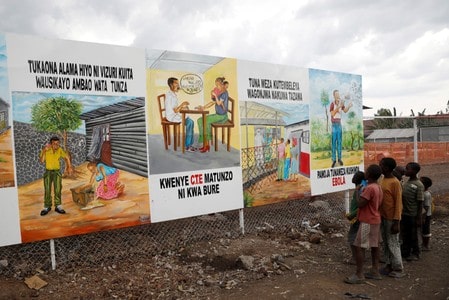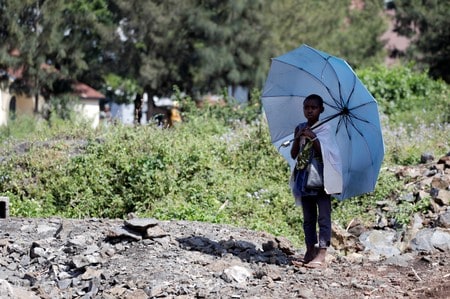NAIROBI (Reuters) – Burundi has started vaccinating its health workers against Ebola, beginning with those near the border with the Democratic Republic of Congo, the World Health Organization (WHO) said on Wednesday.
Burundi has had no reported cases of the deadly haemorrhagic fever, but the viral disease has been spreading in eastern Congo since August 2018 in an epidemic that has now killed at least 1,800 people. Efforts to control the outbreak have been hampered by militia violence and some local resistance to outside help.
The WHO said Burundi’s health ministry had begun vaccinating health workers at the Gatumba border crossing point on Tuesday using the Merck’s rVSV-ZEBOV.
“Although this vaccine is not yet approved and its commercial use is not yet authorized, it has been shown to be effective and safe during Ebola outbreaks in West Africa,” the WHO said in a statement.
“The vaccine is used for humanitarian purposes to protect people most at risk of an Ebola outbreak. It will be administered to health and front-line staff working in priority areas where there is a risk of transmission.”
The WHO’s statement did not say how many doses of the Merck vaccine would be available for the immunization campaign, which is getting financial support from the vaccines alliance GAVI.
Neighboring Uganda has also been on high alert since two people, part of a family visiting from Congo, died of Ebola. A third member of the family died after returning home.
Last week Uganda started its largest-ever trial of a second, experimental Ebola vaccine which is being developed by U.S. drugmaker Johnson & Johnson in collaboration with the Danish biotech Bavarian Nordic.
An Ebola epidemic in West Africa from 2013 to 2016 became the world’s largest ever outbreak when it spread through Guinea, Liberia and Sierra Leone and killed more than 11,300 people.
(Writing by George Obulutsa; Editing by Kate Kelland and Mark Heinrich)



